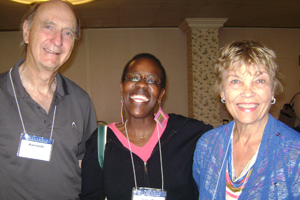Latest News Archive
Please select Category, Year, and then Month to display items
01 March 2023
|
Story Alicia Pienaar
 Prof Mathys Labuschagne is the Head of the Clinical Simulation and Skills Unit within the School of Biomedical Sciences in the Faculty of Health Sciences
Prof Mathys Labuschagne is the Head of the Clinical Simulation and Skills Unit within the School of Biomedical Sciences in the Faculty of Health Sciences
The Dean of the Faculty of Health Sciences, Prof Gert van Zyl, invites you to the inaugural lecture of Prof Mathys Labuschagne, Head of the Clinical Simulation and Skills Unit within the School of Biomedical Sciences in the Faculty of Health Sciences.
Subject: Clinical Simulation: Quo Vadis?
Venue: Auditorium, Equitas Building, Bloemfontein Campus
Date: 8 March 2023
Time: 17:30
RSVP on or before Friday 3 March 2023
Light refreshments will be served after the inaugural lecture.
About Prof M Labuschagne
Prof Mathys Labuschagne is the Head of the Clinical Simulation and Skills Unit within the School of Biomedical Sciences in the Faculty of Health Sciences at the University of the Free State. He completed his MB ChB degree and qualified as an ophthalmologist in 2006.
He developed an interest in health professions education and obtained a PhD in Health Professions Education in June 2012. The title of his thesis was: Clinical Simulation to enhance undergraduate medical education and training at the University of the Free State.
Prof Labuschagne was appointed Head of the Clinical Simulation and Skills Unit at the University of the Free State. The facility is utilised for undergraduate and postgraduate clinical simulation training, as well as interprofessional training and research. He has a special interest in simulation as training tool, precision skills training, and mastery of learning and simulation as tool to prepare students for interprofessional education and collaborative practice.
Prof Labuschagne is part of a multi-institutional consortium that developed the MySkills Medic app. It is a clinical procedural skills application aimed at graduating medical students, interns, and community-service doctors. He was appointed as a member of the Ophthalmology Foundation Education Simulation Subcommittee (affiliate of the International Council of Ophthalmology) tasked with developing a white paper to guide simulation training for ophthalmologists. He is involved in postgraduate supervision for master’s and PhD students in HPE.
The practice of mourning loss
2014-06-11

Prof Kenneth Gergen, Dr Jennifer Githaiga and Prof Mary Gergen
Photo: Supplied |
Among international delegates from over 60 nations and more than 1 300 participants, Dr Jennifer Githaiga presented her paper on the practice of mourning – the African way.
Her paper questioned the language used in psychology to ‘pathologise’ African people’s mourning practices. Drawing from her doctoral research, she explained the role of maintaining close bonds with family members after they pass away. Rather than severing these bonds, Dr Githaiga argued that continued attachment beyond death plays a significant role in healing the trauma of loss.
Dr Githaiga’s entitled her paper ‘The “pathology” of post-bereavement bonds: cultural positioning in qualitative inquiry.’ She presented this at the Tenth International Congress of Qualitative Inquiry (ICQI). A conference that has become one of the most important events on the calendar of qualitative researchers across the globe. The event was hosted at the University of Illinois in Urbana-Champaign from 21 - 24 May 2014. The theme of the conference this year was ‘Qualitative Inquiry and the Politics of Research’.
Dr Githaiga is currently a postdoctoral fellow at Trauma, Forgiveness and Reconciliation Studies at the UFS. During the congress, she also found herself in the role as ambassador to Kovsies. Not only did she rub shoulders with highly-regarded Profs Kenneth and Mary Gergen, but also spoke with leading scholars in the field of qualitative research interested in our university.